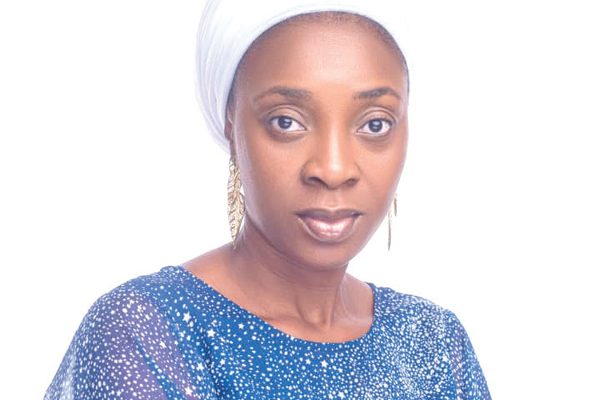Adekanbi Temilade, an entrepreneur and humanitarian advocate, is the chairperson of Survivor Empowerment and Counselling Centre, a non-governmental organisation dedicated to finding solution to the yearnings of the less privileged, youth, orphan and aged people in the society speaks on the role of women society, right orientation for youths and school outreach among other issues, she speaks with Yejide Gbenga-Ogundare. Excerpts.
What do you consider the role of women in today’s society?
The role of women in today’s society is multifaceted and continually evolving. Women participate in all sectors, including politics, business, education, science, technology and the arts.

What gave you the belief that there are many vulnerable women around and how can their lots be bettered?
I have met and had engagement with lots of women. I have been doing a lot and I intend to continue to provide comprehensive counseling and support services by offering free or low-cost counseling, support groups and trauma-informed care to help survivors of violence, abuse and exploitation heal and regain their sense of power and autonomy. We advocate for policy changes; work to influence local and national policies to strengthen legal protections, improve access to services, and address the root causes of gender-based violence and vulnerability, raise awareness and challenge social norms, conduct public education campaigns to challenge harmful gender stereotypes, promote healthy relationships and de-stigmatise issues like domestic violence, sexual assault, and sex trafficking.

Also, we build economic empowerment programs by providing vocational training, job placement assistance, financial literacy education and entrepreneurship support to help vulnerable women achieve economic independence, offer safe housing and shelter, establish or partner with shelters that provide temporary housing, food and other basic necessities for women and children fleeing abusive situations, collaborate with other organisations to create a robust, holistic support system for vulnerable women and amplify the voices of survivors by providing platforms for survivors to share their stories and perspectives and ensure their experiences inform the design and delivery of all programs and services.

How do you manage this?
The key is to take a multi-faceted, trauma-informed approach that addresses the diverse needs and challenges facing vulnerable women in your community. Empowering and supporting these women can significantly improve their quality of life and create a more just, equitable society.
How can women drive change in the society?
There are so many ways in which women can drive positive change in society. Some key ways include getting involved in politics and leadership roles to influence policy and decision-making. Women’s representation in government is still below parity in many countries, so women running for office and taking on leadership positions can make a big difference, advocating for gender equality, women’s rights, and ending discrimination against women. This can involve activism, volunteering, supporting relevant organizations, or simply being a vocal advocate in one’s own community.
Also, pursuing careers in traditionally male-dominated fields like STEM, business and technology; this helps break down gender stereotypes and expands opportunities for women, supporting and uplifting other women through mentorship, networking, and creating opportunities; women empowering other women is a powerful force for change.
In addition, using one’s voice, talents, and platform to shine a light on important women’s issues and challenge the status quo, leading by example and embodying the changes they wish to see – whether that’s in family, work, community, or society at large. The key is for women to get involved, speak up, and leverage their skills, influence, and unique perspectives to shape a more equitable and inclusive world. Small actions can create meaningful ripple effects.
As an organisation that focuses on women, how did you get into the “securing the future” initiative?
You know that anything that has to do with women carries along so many other areas, moreover we are dedicated to providing a better society through counseling and orientation, so in view of catching them young, we have decided to go round schools to encourage, counseling the youth against the social influences and peer group pressure that can affect the future of our youth,this will enable them to know how to navigate through life, then it make them have a sense of belonging and responsibility as the future leaders; through that we can have a better society.
How many students did you reach with the program and will you say it made a difference in their lives?
We were able to reach about 1,800 students in six secondary schools in Oyo state though we just started; we hope to be able to cover almost all the secondary schools by God’s grace.
Yes! It was a very interesting experience, the student really enjoyed and appreciated the process, it was as if they have been expecting such , we discovered that majority of them has been battling silently with different types of psychological and emotional problems, which there was nobody to help out, but through the program, most of their problems were solved, we had the NDLEA team with us, to enlighten them on drug issues, counselors from different areas of life, academicians, artisans from different aspects. We also had volunteers of different works who has decided to train then on areas of interest. Some JAMB forms were also distributed to schools to encourage them. It was a very good experience and we are still in the process of “securing the future”.
What role do individuals have to play to create a better society?
Individuals play a crucial role in creating a better society by practicing empathy, promoting inclusivity, and engaging in civic responsibilities. This involves respecting diverse perspectives, supporting social justice initiatives, participating in community service, and advocating for sustainable practices. Personal accountability, continuous learning and fostering positive interactions also contribute significantly to societal improvement.
There is a get rich quick syndrome ravaging the society. Will you say women have a role to play in this?
The phenomenon of “get rich quick” syndrome is a complex societal issue influenced by various factors, including cultural, economic, and psychological aspects. While both men and women are affected by and contribute to this trend, attributing a significant role specifically to women or any single group would be an oversimplification. Several factors influence the rise of the get rich quick mentality; social media platforms often highlight the success stories of individuals who appear to have gained wealth rapidly. Influencers, regardless of gender, can perpetuate unrealistic expectations about wealth acquisition, economic pressures; economic instability and inequality can drive people to seek quick financial solutions. Both men and women are susceptible to these pressures, although the specific impacts can vary based on societal roles and expectations.
Societal narratives around success and wealth often emphasize quick results rather than gradual progress. These narratives are promoted through various channels, including advertisements, entertainment, and even educational systems and gender dynamics as well as the allure of quick riches taps into human psychology’s desire for instant gratification, a trait not confined to any gender. Both men and women can fall prey to the appeal of immediate wealth without considering the long-term consequences. In summary, while women, like men, can and do participate in and sometimes perpetuate the get rich quick mentality, the issue is multifaceted and not solely driven by one gender. Addressing this syndrome requires a broader approach, including promoting financial literacy, realistic goal setting, and highlighting the value of hard work and perseverance across society.
ALSO READ: 2027: Atiku, Obi united by mutual desperation —APC








